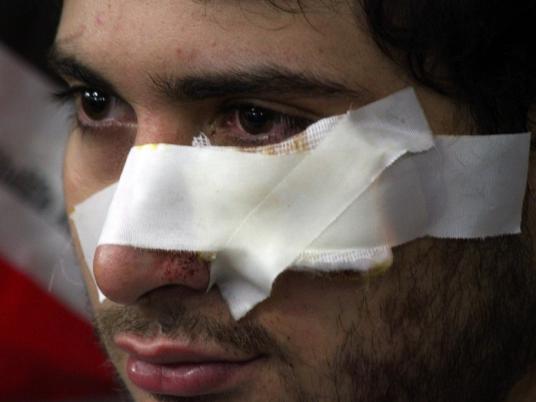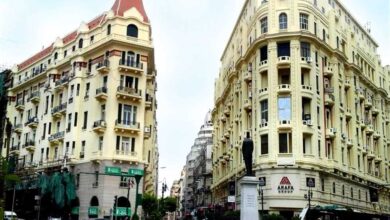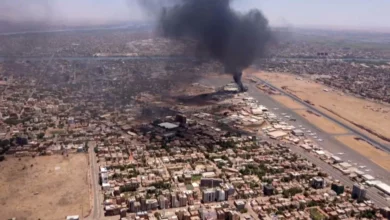
During ongoing anti-military protests that erupted last week, a clear divide has emerged between the Gandhis and the Guevaras, in other words, the thousands who chant and march peaceably in Tahrir Square and the hundreds who throw rocks, bottles and Molotov cocktails in downtown Cairo’s side streets.
“We’re fighting the police because they are thugs,” 17-year-old Mohamed Karam said at the time, as he prepared to launch a Molotov cocktail at the “thugs” down the street. “The thuggery of the Central Security Forces (CSF) is the same as it was during the days of Mubarak. In fact, they might have grown more repressive since the revolution," he added. In the background, dozens of Karam’s comrades chanted, “The police are thugs!”
This sentiment was common among frontline fighters.
“The authorities are calling us thugs on state-owned radio and TV, but in reality it is the police who are thugs," Ahmed Atwa, a 29-year-old street vendor, said. He pulled down the neck of his shirt to reveal a large scar on his left shoulder. "This is from the police officer and his soldiers who tortured me in the Helwan police station in 2001."
Most — though certainly not all — of the Guevaras are like Karam and Atwa, working class or unemployed men in their teens or twenties from some of Cairo’s poorest neighborhoods who say they haven’t yet finished their educations.
Karam, a high-school dropout, participated in the 18-day uprising against then-President Hosni Mubarak. He said he returned to the streets on 19 November "because I saw how the Central Security Forces brutally assaulted the peaceful protesters camped in Tahrir Square on Saturday. It's my duty to protect these people — and to teach the police a lesson."
Another street fighter, who called himself “Hamdy Molotov,” clenched a petrol bomb in his hand. Like Karam, “Molotov” is unemployed.
"The police and army, acting on the orders of the Supreme Council of the Armed Forces, instigated these clashes by attacking peaceful protesters in the square," he screamed over the din of the battle.
Referring to 19 November, when the most recent clashes began, “Molotov” said, "On Saturday the police attacked the families of those martyred in the revolution, along with wounded and disabled revolutionaries camping in the square. Have the police not done enough harm already?"
“Yesterday the Central Security Forces and the military police dragged the corpses of protesters they had killed and piled them up in a garbage heap,” the 23-year-old revolutionary said. “This is against the basic tenets of Islam and Christianity. Not even the Zionists commit such barbaric crimes."
"We cannot accept such crimes from the police or the army. Our revolution was meant to put an end Mubarak's corruption and to end police brutality," the street fighter added. “Our revolution started on 25 January, which was Egyptian Police Day, and this is why we must make sure that the police do not resort to their old ways. This is why we are fighting."
“Molotov” had barely finished this sentence when the CSF resumed firing volleys of teargas canisters, rubber bullets and live ammunition. Other black-clad CSF troops hurled rocks and bottles at the street fighters. The fighters briefly took cover behind makeshift barricades and burnt-out cars, then resumed hurling rocks. The battle raged on.
Minutes later, a handful of older Gandhis held their hands in the air and chanted, "Peaceful, peaceful" as they positioned themselves between the younger Guevaras and the CSF troops. A five-minute lull ensued.
But “peaceful” isn’t the aim of many of the youth who seek out and hold down the front lines. They want some kind of revenge against the police “thugs” who have harassed them for years. Atwa, the street vendor-turned-rock-thrower with a torture scar, has a score to settle.
"The police have repeatedly confiscated and stolen the clothes I sell on the sidewalks. I've also been locked up for several months just because I sell these goods on the street. I need to make a living to pay my rent,” he said.
"I'm not a criminal. It is the police who are criminals and thugs for abusing me. They must pay for the crimes they committed against me, and against others."




